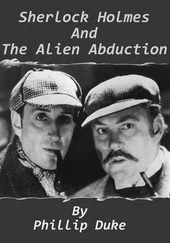“There can only be one place for you, Mr Holmes,” Fisher said at length, his eyes holding my friend’s gaze, “Your gifts belong at the heart of our nation’s security. Without such intelligence as you can bring us, we fight blind-and deaf too, for that matter.”
“To begin with,” said Holmes, more gently than I had feared, “if I were to travel like an office boy each day from Baker Street to Whitehall, I should soon have every spy in London on my back. I take it that when we speak of Whitehall we are talking of the famous Room 40 in the Old Admiralty Building. Room 40 is a secret so well kept that every newspaper boy in the West End streets can tell you a dozen stories about it.”
“If there are spies on your tail, the more easily shall they be caught,” said Fisher evenly. “We shall get the better of those fellows, believe me. I have given the matter considerable thought.”
Holmes seemed only to be half listening. He was looking round the ante-room, as though it were beyond his conception that any sane man should choose to live among such paint and gilt, such damask and satin as this. He responded to Fisher by raising his eyebrows a fraction, indicating a little surprise that a mere admiral of the fleet should presume to think in competition with the sage of Baker Street. Then he sighed.
“Very well. Tell me what you propose.”
Jacky Fisher relaxed and began to explain himself.
“Some years ago, you will recall that you first came to my assistance by recovering the Bruce-Partington submarine plans which had been stolen from Woolwich Arsenal. Indeed, our friend Dr Watson wrote an account of your adventure on that occasion.”
“Not by my wish,” said Holmes quickly but Fisher ignored him.
“At the time,” he continued, “I recall that you had made a hobby-or a study-of the choral music of the Middle Ages. Indeed, you were writing an analysis of the Polyphonic Motets of Orlando Lassus, were you not? I was much struck by that.”
“Your memory does you credit,” said Holmes dryly. Sir John brushed this aside.
“I will make a suggestion. Our adversaries in Berlin would give a good deal to know of your activities in the course of this war. I intend to appease their curiosity by feeding them something to chew on. Now, then. Your reluctance to go to war is humane and sensible. I will not ask you to compromise your views. Indeed, I suggest that you should compose a letter to the editor of the Times or the Morning Post or both, expressing your disapproval of this coming entanglement with Germany and your hopes for an early resolution of the conflict…”
“Not merely a disapproval of this war but of all such unnecessary wars,” Holmes retorted.
Captain Hall blinked but Fisher took this in his stride.
“The fact that the letter is genuine in its sentiments is entirely as I would wish. Having let your feelings be known, you should then openly pledge to dedicate yourself to the study of Orlando Lassus. Of course, the Germans may doubt the sincerity of your objections to the war but they cannot be sure. A suitable library should be chosen for your work. It must not be open to the public. If there is free access, your movements could be spied upon even while you were at your desk. That would never do. You will be seen coming and going to the institution but that also is as we would wish it.”
“And behind this charade of Achilles sulking in his tent?” Holmes inquired.
“I propose,” said Sir John Fisher, the eyes twinkling at last, “or rather His Majesty proposes, that you should become Director of Admiralty Signals Intelligence at Room 40. We divide our surveillance into Human Intelligence and Signals Intelligence. We offer you Signals. You see that your fame goes before you!”
Holmes began to mellow a little under Fisher’s charm. As we talked of the proposed arrangement that evening in the anteroom, the dancers whirled in a twisting of silk and a glitter of diamonds, a few feet away beyond the locked door.
The very existence of Room 40 was supposed to be known only to the trusted few. Despite Holmes’s scornful aside, that was still the case. At the rear of the Old Admiralty Building, this room and its offices looked out across the expanse of Horse Guards Parade and St James’s Park towards the heavy Renaissance pile of the Foreign Office. It was the centre from which the best brains of Naval Intelligence struggled with the coded signals and secret telegraph messages that filled the night sky between Berlin and Ankara, Vienna and New York, Valparaiso and Tokyo.
In addition, Fisher confided to us that the German deep-sea cables carried both naval and diplomatic ciphers, as well as conventional telegrams. They ran from Bremen on the bed of the North Sea, westwards down the English Channel, then across the Bay of Biscay to Vigo in northern Spain. From here they extended across the Atlantic to New York, and alternatively to Buenos Aires, touching first at Tenerife in the Canary Islands.
These sea-bed cables were not destined to survive the outbreak of war by more than a few hours. The Cable & Wireless company’s cable-laying ship Telconia was lying at Dover, already commandeered by the Admiralty and with a Royal Navy crew aboard. A few hours before the British ultimatum to Berlin expired, she would put to sea in darkness, carrying sealed orders. Her course had been set for the neutral Dutch coast to strike at the weakest point, where the cables must run in shallow waters. There the vessel would ride at anchor in the darkness and the mist, where the territorial waters of Holland meet those of Germany, awaiting the midnight signal from the Admiralty to all shipping that war had been declared.
As soon as the signal was received, Telconia was to trawl with her grappling gear for the five transatlantic cables in their iron sheathing. They would be hauled to the surface at the invisible sea-frontier. Royal Navy cable engineers were to sever them through their iron casings and let the broken ends fall back into the depths. Neutral Holland might continue to signal to the world. Our enemies in Germany would be obliged to communicate openly by wireless from the powerful transmitter at Nauen near Berlin or through neutral countries, most probably Sweden. Every one of the coded messages sent by such means could be intercepted by a new chain of Admiralty signal stations established round our coasts.
Having explained this, Fisher came to the supreme consideration of security and secrecy. “Your presence at the Admiralty, Mr Holmes, is to be kept from public knowledge. Our opponents almost certainly know that you have broken their code in the past. We must try to persuade them that you have not been given the chance to do it again.”
Captain Hall interposed, rather diffidently, as became a newcomer to the debate.
“Our first measure has been an attempt to convince our adversaries of the existence of a vast and efficient network of British spies on the Continent. Indeed two Royal Navy officers, Lieutenant Brandon and Lieutenant Trench, have served prison sentences in Germany. It seems Tirpitz prefers to believe that his cipher-tables may have been given away by indiscretion, or even betrayed, but not deciphered. We have a small number of spies in Europe, to be sure, but nothing like the total that the Wilhelmstrasse believes. A few of our most skilled and important agents play the part of traitors to us. We know that German intelligence believes such disloyalty to be the most valuable source of their information.”
Holmes turned away and stood silent for a moment. Sir John Fisher interrupted his thoughts with growing impatience.
“You say that you disapprove of this war, Mr Holmes. You do not disapprove of it more heartily than I do-or more deeply than the King himself. So long as it continues, the best of our young men face death in the trenches or on the high seas. The sooner it is over, the better. With your abilities we may win bloodless victories. If there is war, there must be battles, of course. But many more battles that would have cost tens of thousands of young lives may never need to be fought. I low much better to triumph in this way than through the hecatombs of the slaughtered young.”
Читать дальше












